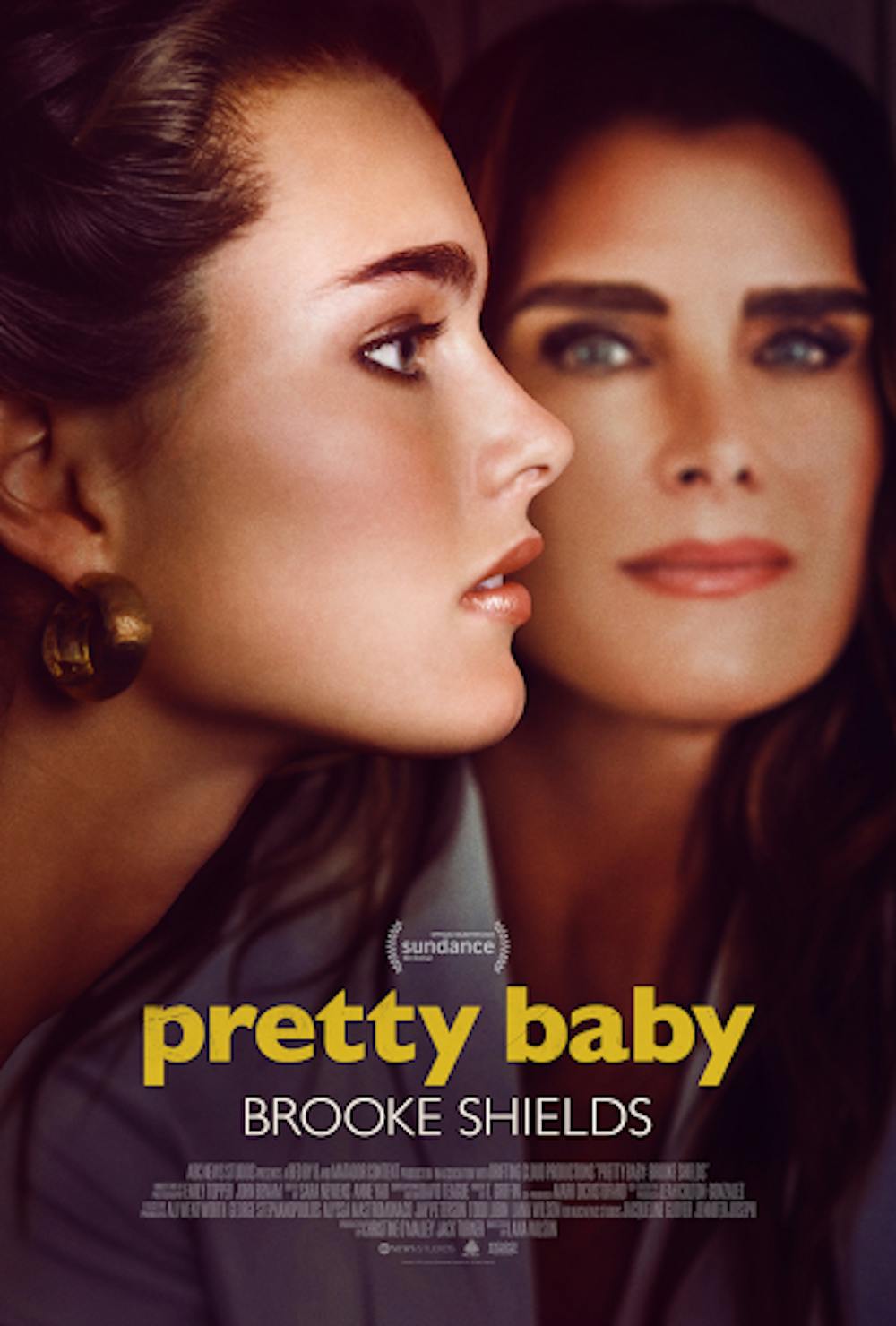By Sara Nigro
Staff Writer
Brooke Shields has been regarded as an icon in Hollywood since she was a young girl, known for her risque and provocative modeling and acting. Now 57, Shields opens up in her documentary about the oversexualization of her childhood in the spotlight. The two-part film, “Pretty Baby: Brooke Shields,” debuted on Hulu on Monday, April 3.
To an unassuming viewer, “Pretty Baby: Brooke Shields” tells an in-depth story that is open to individual interpretation. Based on the facts and the opinions of those surrounding her life story, the audience can create their own opinions based on movie scenes and interview quotes.
The title is based on the historical drama “Pretty Baby,” the film where Shields earned her breakout role at just 12 years old. The film accurately portrays the overall theme of the documentary, a young girl placed in the trust and care of adults who use their misplaced intentions to take advantage of her.
The documentary details the professional jobs that Shields has had since she entered the entertainment industry at just 11 months old. From Band-Aid commercials to nude scenes in Blue Lagoon to her Calvin Klein campaign at just 16, the film chronologically explains all the stepping stones in her career.
Following Shields’ narrative from a child up to present day allows for an easily understandable look into her personal growth, as well as the evolution of the industry.
The documentary opens with an interview with Mike Douglas and Shields as a young girl. He tells her, “You really are an exquisite-looking lady. I know you’ve been told that but isn’t she a pretty-pretty girl? To have you sitting here with me…” Shields nervously laughs, obviously uncomfortable, setting the tone for the rest of the flashbacks of interviews to come.
The film uses interviews from Shields, her childhood friends, her former bodyguard and another child actress, Drew Barrymore. Using such a wide array of people to share their perspective on the situation as a whole gives a broadened insight for the audience.
The diversity of interviewees allows the audience to gain a broader understanding of who Shields is as a person, on screen and off. Shields values varying perspectives from multiple people, as well as past interviews and home videos that create an overall authentic tone.
In addition to those close to the story, activist and writer Jean Kilbourne is there to share an educated perspective on the world of child sexualization and the misogynistic system of Hollywood that still exists today. Shields is the perfect candidate for this discussion because of the constant obsession over her looks, which was only further instigated by the sexual nature of her work as a child.
Throughout the documentary, Shields’ vulnerability is on display as she discusses her personal and professional struggles. She opens up about her mother’s alcoholism, her relationship with her ex husband Andre Agassi and the complications with pregnancy and postpartum.
While other celebrities and public figures have proven their strength through honest interviews and documentaries of their own, what separates Shields from the rest of them is her ability to portray her story in a succinct and impactful manner.
Shields often discusses the concept of beauty throughout the documentary, as she explains how it is essentially meaningless because she just happened to be born with a certain face. As an actress and model, her face and body became symbolic of who she is as a person, but Shields proves her intelligence and resilience are more authentic to who she is.
As a young adult, Shields was accepted into the prestigious Princeton University. The first part of the documentary ends with Shields graduating from the university, a rebellious act, because of what was expected of her.
A recurring topic of conversation throughout the documentary focuses on her mother and manager, Teri Shields. She has been greatly criticized by the public for her seemingly opportunistic values in regards to her managerial aspect for her daughter.
In an interview featured in the documentary, Teri encourages this controversy as she says, “Ever since Brooke was a baby she’s been encouraged to be sensual.”
Shields, as well as the other interviewers, gives insight into the relationship between mother and daughter, in addition to struggles with addiction.
Despite her struggles within the entertainment industry and her personal life, Shields demonstrates her resilience and the importance of speaking up to help others. Well-spoken and classy, she proves her brain is more valuable than her beauty, as she uses both to her advantage. “Pretty Baby: Brooke Shields” not only tells the narrative of the star, but also spurs a call to action for those neglecting the mistreatment of women and children in Hollywood.







